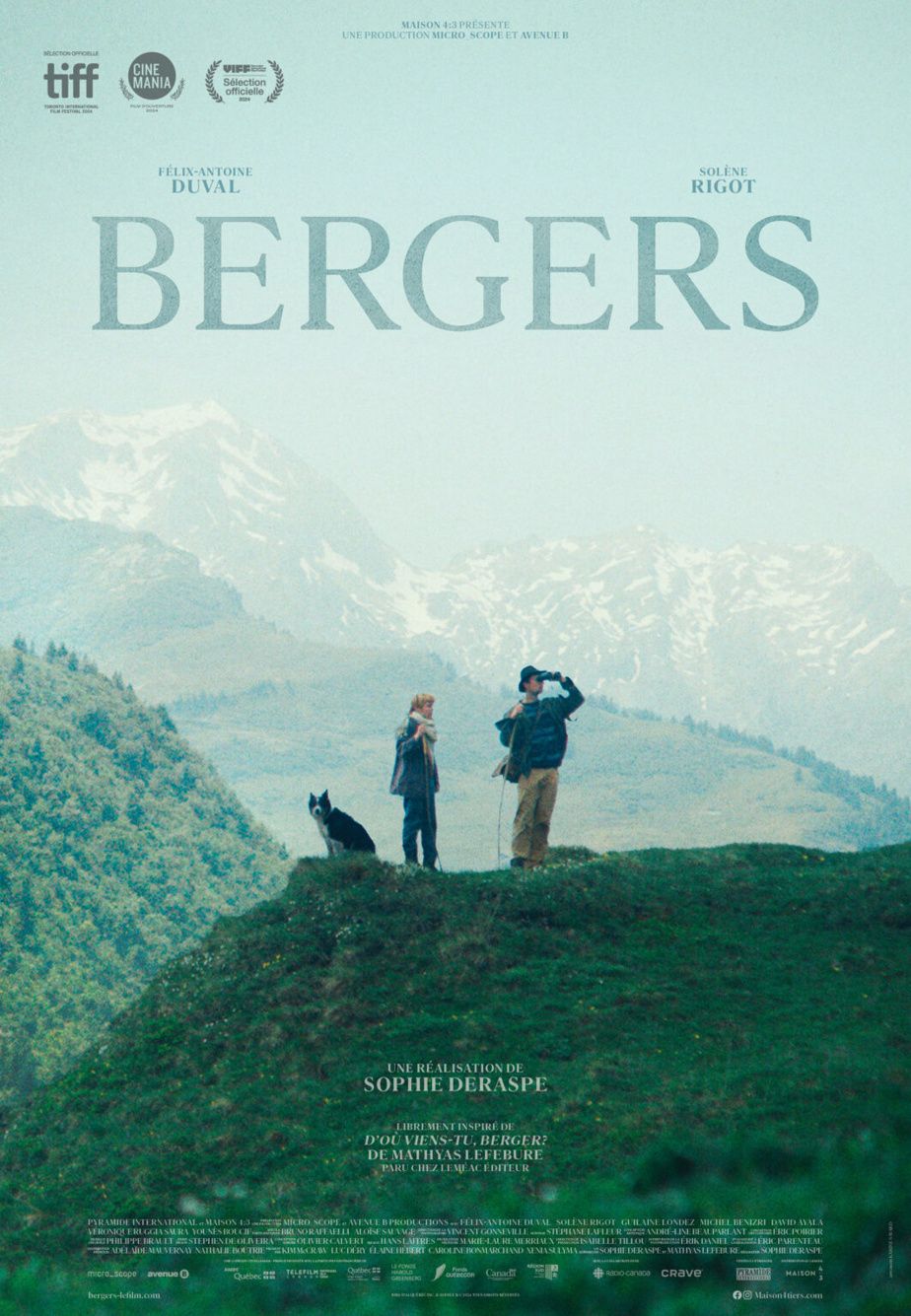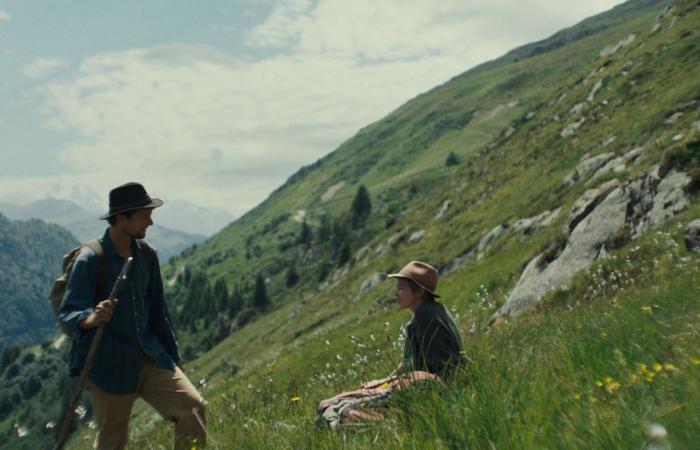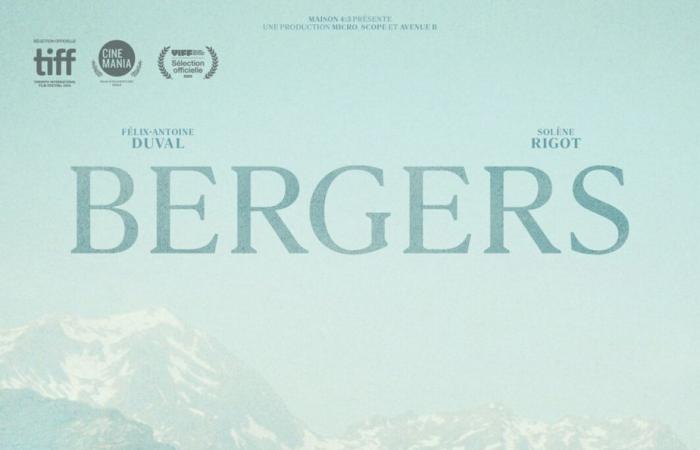By freely transposing Mathyas Lefebure’s autofiction story into Shepherdswinner of the Best Canadian Film Award at the Toronto Film Festival, filmmaker Sophie Deraspe transcends this mid-thirties crisis story by taking an empathetic look at the difficulties of sheep farming.
Published at 7:30 a.m.
Tired of the world of advertising and the urban lifestyle, Mathyas (Félix-Antoine Duval, of rare photogenicity), a Montrealer keen on philosophy in his early thirties, left everything behind to become a shepherd in Provence. Hired by the Telliers (Véronique Ruggia Saura and Bruno Raffaelli), who are somewhat drowning in poverty, he learns the job the hard way with Ahmed (Michel Benizri), who hates sheep.
Having fallen in love with Élise (Solène Rigot), a French civil servant he met during his administrative adventures, Mathyas maintains a correspondence with her in order to tell her about his initiation into pastoral life. Witnessing the violence against animals among the Telliers, the apprentice shepherd leaves his job on a whim. Shortly after, Mathyas and Élise, who has also left office, are hired by Cécile Espriroux (Guilaine Londez), a proud and successful shepherdess, who was looking for a couple to carry out the transhumance of a herd of 800 sheep in the Alps. .
With his impressive career, both in cinema (Amina’s profile, Antigone) than on TV (Black beast, Motel Paradis), Sophie Deraspe has long confirmed the extent of her talent. Written with the collaboration of Mathyas Lefebure, author of the autofiction story with lyrical and philosophical flights Where are you from, shepherd? (Leméac, 2006), the sixth feature film by this filmmaker, who skilfully combines fiction with reality, fits perfectly into her filmography.
Solid learning story
Carried by the dazzling photo of Vincent Gonneville (Where we come fromby Meryam Joobeur), which offers breathtaking views of the majesty of the landscapes, Shepherds proves to be both a solid learning story, a vibrant plea in favor of a profession threatened from all sides and a rigorous documentary approach coupled with a humanist perspective. Added to this are the impeccable artistic direction of André-Line Beauparlant, the editing of Stéphane Lafleur, which perfectly matches the introspective character of the philosophical shepherd, and the music of Philippe Brault, which fits perfectly with the picturesque setting of the together.
PHOTO PROVIDED BY MAISON 4:3
Still from the film Shepherds
Beyond the pastoral beauty and spectacular scenes of transhumance of ShepherdsSophie Deraspe, like Mathyas Lefebure in the original story, reveals the difficulties of a little-known agricultural environment, which can lead to the worst excesses, even the worst horrors.
Obviously, the filmmaker does not fit into the Epinal image. Sometimes, you have to have your heart set against the cruelty that is displayed in certain scenes. In counterpoint, humor, lightness, poetry and sensuality are there, particularly in the moments shared by the young shepherd and his companion, whose bonds they forge allow them to bravely face the horrors of the profession.
In the skin of the idealistic and intellectual shepherd, Félix-Antoine Duval, who shows no resemblance to the real Mathyas, brings an irresistible candor to the character, preventing him from being reduced to an arrogant figure believing he knows everything about breeding. sheep thanks to his readings. At her side, Solène Rigot, who has put her charms aside to embrace the true nature of the shepherdess, proves to be an ideal play partner.
In the room

Drama
Shepherds
Sophie Deraspe
With Félix-Antoine Duval, Solène Rigot, Guilaine Londez
1 h 53
8/10








